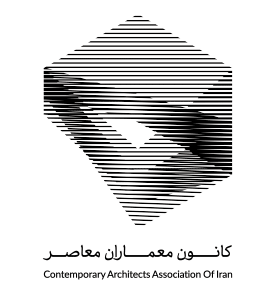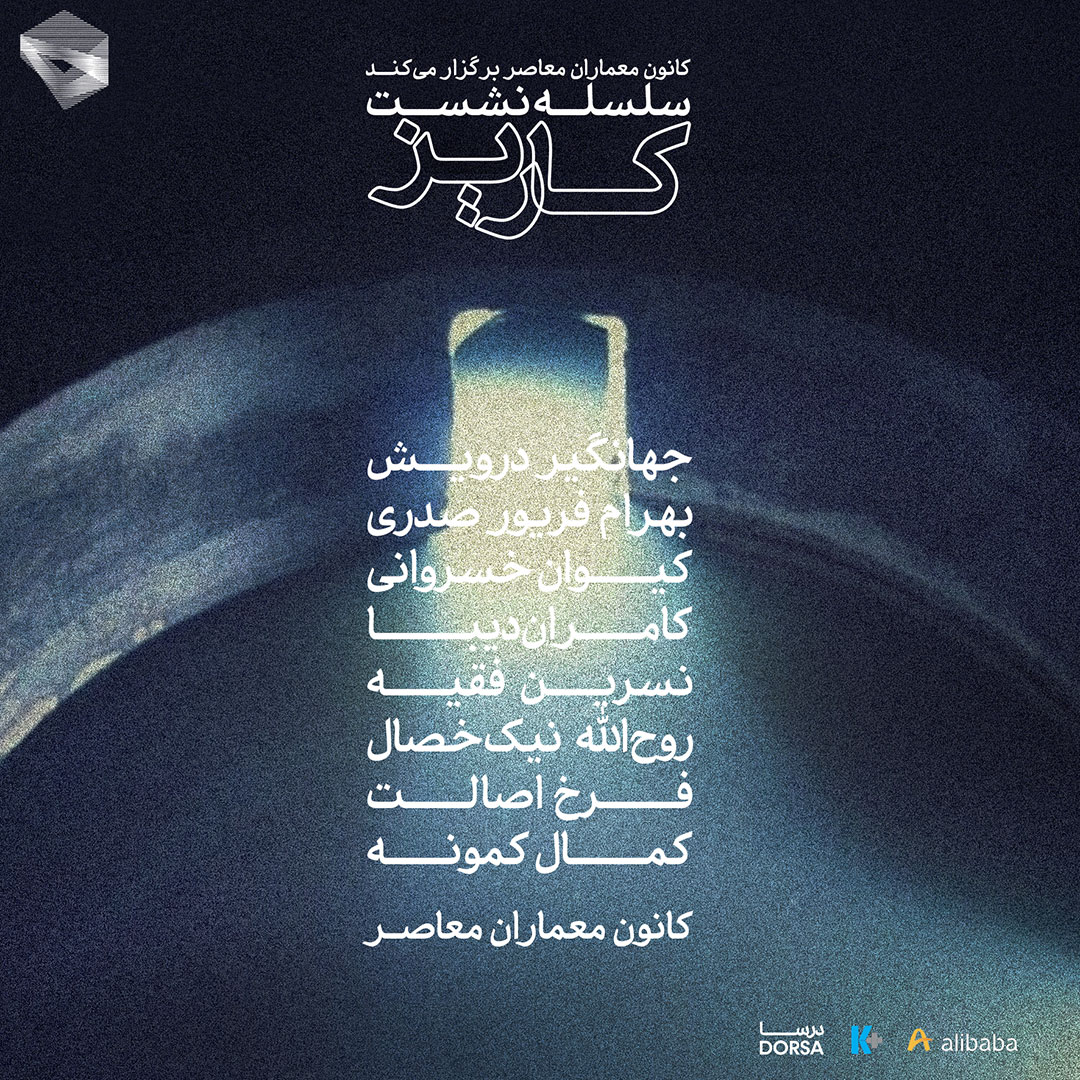
Kariz
Curators: Sam Giurad, Negar Mansouri
Walter Benjamin used two terms to address the concept of experience. He defined our raw, scattered, and fragmented experiences with the term Erlebnis, which refers to experiences that do not transform into a coherent concept, are often remain unexpressed, and can sometimes drift into the realm of memory.
In contrast, the experience defined by the term Erfahrung is one that can be narrated, conveys a concept, and imparts knowledge to the subject. According to Benjamin, this is the type of experience from which we learn valuable lessons. The series of events known as KARIZ aims to explore the delicate boundary between these types of experiences, asking, “What unfolds in the play?”
The goal of this project is to recognize the lived experiences of great architects from previous generations for the benefit of their successors and architecture students. This involves understanding “history” as a continuum and as a “historical matter,” as Karl Jaspers describes it, within the context of a “lived life.” Although fully reaching this understanding may be impossible, the degree of approximation to it is a characteristic of a “historical society.” This criterion of closeness differentiates a well-formed society from one that merely exists.
Another goal of this project is to gather biographies and completed or unfinished projects through primary sources, as well as to engage in dialogues with these architects. This will include re-evaluating the outcomes and fates of these projects from the perspectives of “temporality” and the historical resilience of our people in preserving these legacies.
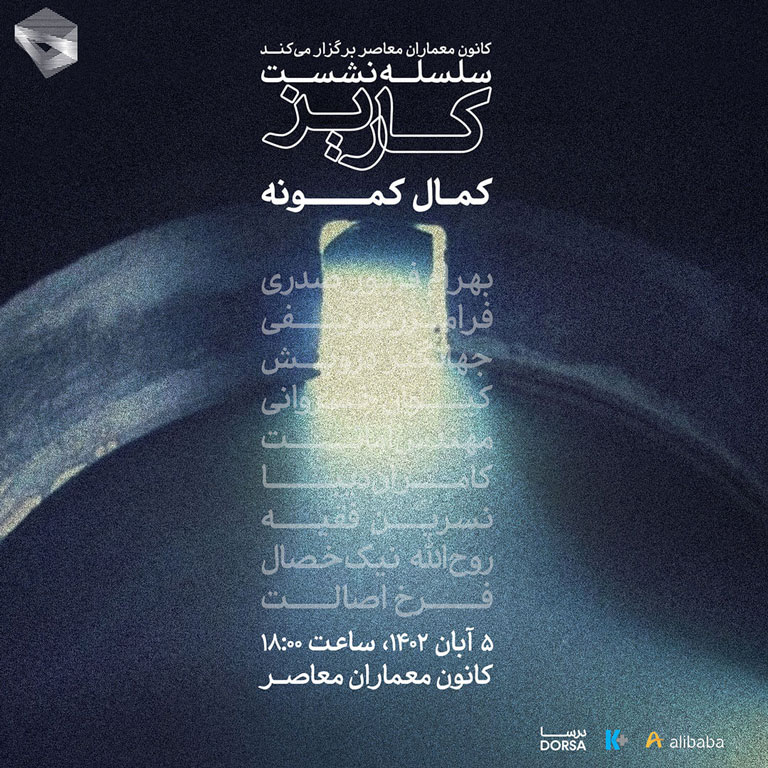
Walter Benjamin used two terms to address the concept of experience. He defined our raw, scattered, and fragmented experiences with the term Erlebnis, which refers to experiences that do not transform into a coherent concept, are often remain unexpressed, and can sometimes drift into the realm of memory.
In contrast, the experience defined by the term Erfahrung is one that can be narrated, conveys a concept, and imparts knowledge to the subject. According to Benjamin, this is the type of experience from which we learn valuable lessons. The series of events known as KARIZ aims to explore the delicate boundary between these types of experiences, asking, “What unfolds in the play?”
The goal of this project is to recognize the lived experiences of great architects from previous generations for the benefit of their successors and architecture students. This involves understanding “history” as a continuum and as a “historical matter,” as Karl Jaspers describes it, within the context of a “lived life.” Although fully reaching this understanding may be impossible, the degree of approximation to it is a characteristic of a “historical society.” This criterion of closeness differentiates a well-formed society from one that merely exists.
Another goal of this project is to gather biographies and completed or unfinished projects through primary sources, as well as to engage in dialogues with these architects. This will include re-evaluating the outcomes and fates of these projects from the perspectives of “temporality” and the historical resilience of our people in preserving these legacies.
Speaker: Kamal Kamoune
Date: October 27, 2023
Time: 6:00 PM
Curators: Sam Giurad, Negar Mansouri
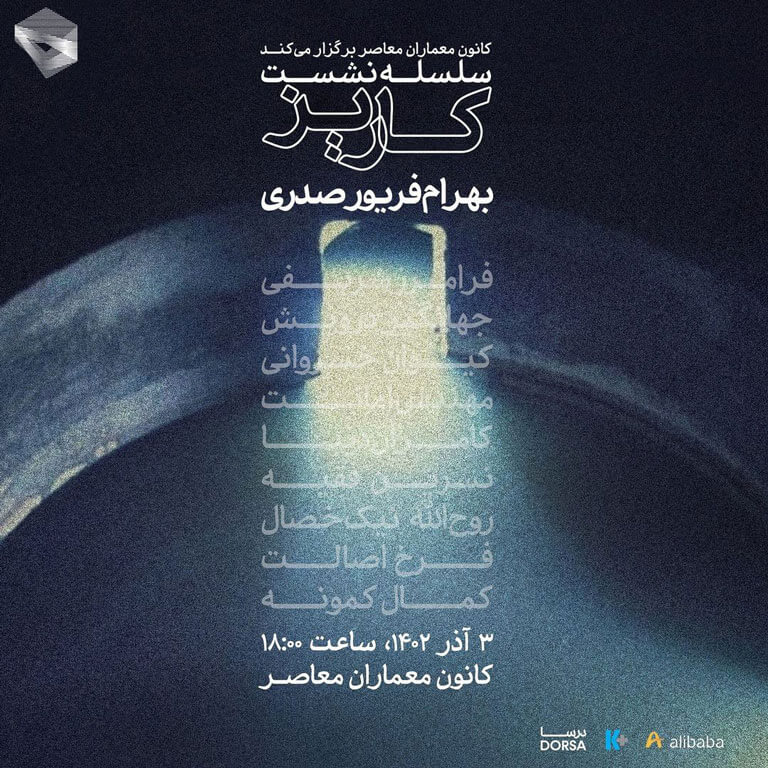
Walter Benjamin used two terms to address the concept of experience. He defined our raw, scattered, and fragmented experiences with the term Erlebnis, which refers to experiences that do not transform into a coherent concept, are often remain unexpressed, and can sometimes drift into the realm of memory.
In contrast, the experience defined by the term Erfahrung is one that can be narrated, conveys a concept, and imparts knowledge to the subject. According to Benjamin, this is the type of experience from which we learn valuable lessons. The series of events known as KARIZ aims to explore the delicate boundary between these types of experiences, asking, “What unfolds in the play?”
The goal of this project is to recognize the lived experiences of great architects from previous generations for the benefit of their successors and architecture students. This involves understanding “history” as a continuum and as a “historical matter,” as Karl Jaspers describes it, within the context of a “lived life.” Although fully reaching this understanding may be impossible, the degree of approximation to it is a characteristic of a “historical society.” This criterion of closeness differentiates a well-formed society from one that merely exists.
Another goal of this project is to gather biographies and completed or unfinished projects through primary sources, as well as to engage in dialogues with these architects. This will include re-evaluating the outcomes and fates of these projects from the perspectives of “temporality” and the historical resilience of our people in preserving these legacies.
Speaker: Bahram Faryvar Sadr
Date: November 24, 2023
Time: 6:00 PM
Curators: Sam Giurad, Negar Mansouri
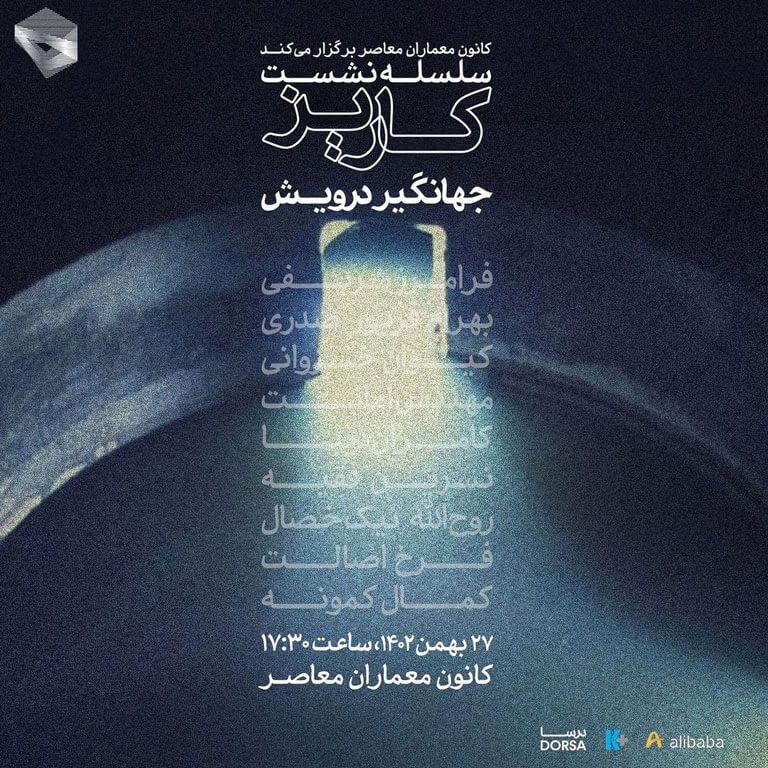
Walter Benjamin used two terms to address the concept of experience. He defined our raw, scattered, and fragmented experiences with the term Erlebnis, which refers to experiences that do not transform into a coherent concept, are often remain unexpressed, and can sometimes drift into the realm of memory.
In contrast, the experience defined by the term Erfahrung is one that can be narrated, conveys a concept, and imparts knowledge to the subject. According to Benjamin, this is the type of experience from which we learn valuable lessons. The series of events known as KARIZ aims to explore the delicate boundary between these types of experiences, asking, “What unfolds in the play?”
The goal of this project is to recognize the lived experiences of great architects from previous generations for the benefit of their successors and architecture students. This involves understanding “history” as a continuum and as a “historical matter,” as Karl Jaspers describes it, within the context of a “lived life.” Although fully reaching this understanding may be impossible, the degree of approximation to it is a characteristic of a “historical society.” This criterion of closeness differentiates a well-formed society from one that merely exists.
Another goal of this project is to gather biographies and completed or unfinished projects through primary sources, as well as to engage in dialogues with these architects. This will include re-evaluating the outcomes and fates of these projects from the perspectives of “temporality” and the historical resilience of our people in preserving these legacies.
Speaker: Jahangir Darvish
Date: February 16, 2024
Time: 5:30 PM
Curators: Sam Giurad, Negar Mansouri
